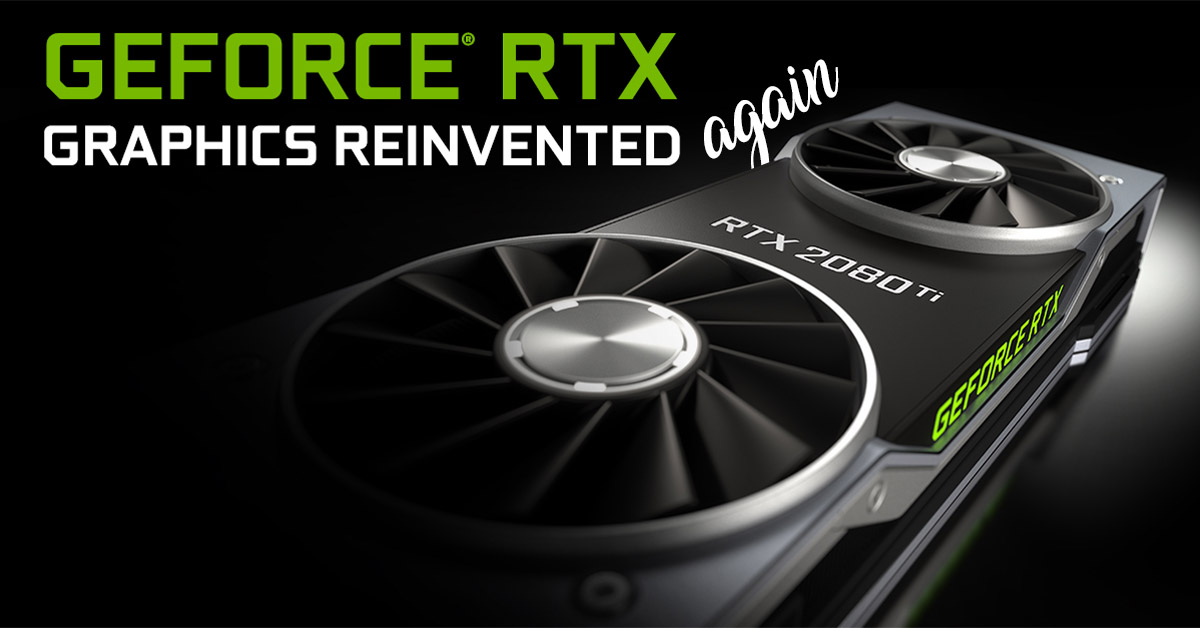
Like its elder siblings, the RTX 2070 will receive a Ti upgrade, will be called the Nvidia GeForce RTX 2070 Ti. Currently, there are just rumors about the product. But the recent speculations are looks quite credible. So it might be just a matter of time when NVIDIA confirms its existence releasing an official statement. Nvidia also teased us about ‘Something SUPER‘ before Computex 2019 and we are eagerly waiting for that one as well. I don’t think the RTX 2070 Ti is what Nvidia had in mind, so maybe we are in for multiple GPU launches pretty soon.
Nvidia GeForce RTX 2070 Ti
According to newfound leaks, the RTX 2070 Ti will be about 10-15% faster than a stock RTX 2070. CUDA core count will be at 2560 as opposed to 2304 (RTX 2070) but still not quite close to the superior RTX 2080. Other specs include 8GB of GDDR6 memory running at 14Gbps. Finally, the GPU will boost at 1770MHz (1710 on the RTX 2070; 1800 on the RTX 2080). As for pricing, the Nvidia Geforce RTX 2070 Ti could launch for anything as low as $499 to $599.
Something SUPER

In addition to the RTX 2070 Ti, we are also looking at a minor refresh to the RTX 2060, 2070 and 2080. The new cards will probably offer higher binned dies, increased clock speeds, and GDDR6 as standard across the board. This should add about 5-15% improvement in performance from the previous version. Expected to go official at E3 2019, the current 20-series GPUs will potentially receive price cuts. Plus, what will they be called, the RTX 2080 already has a Ti version, so? An RTX 2080 SUPER?
Also Read: Samsung phones might get new GPU: Partners with AMD
Let’s just assume they will be called the RTX 2060 SUPER, 2070 SUPER, and 2080 SUPER. All three of those are rumored to retail for as low as $249, $399 and $599 respectively. With AMD quick to adopt the 7nm process, it’s still unlikely for Nvidia to follow on until the yields and TSMC’s capacity to handle the volumes increases. For now, these new cards will be based on the special Nvidia FinFET process from TSMC.
However, even with all these hurdles, Nvidia could still potentially surprise us.







![Best Gaming Laptops in Nepal Under Rs. 250,000 (रु 2.5 Lakhs) [2025] Best Gaming Laptops Under 2.5 lakhs in Nepal [Feb 2025 Update]](https://cdn.gadgetbytenepal.com/wp-content/uploads/2025/02/Best-Gaming-Laptops-Under-2.5-lakhs-in-Nepal-Feb-2025-Update.jpg)
![Best Gaming Laptops in Nepal Under Rs. 120,000 (रु 1.2 Lakhs) [2025] Best Budget Gaming Laptops Under Rs 120000 in Nepal 2025 Update](https://cdn.gadgetbytenepal.com/wp-content/uploads/2025/05/Best-Budget-Gaming-Laptops-Under-Rs-120000-in-Nepal-2024-Update.jpg)
![Best Laptops Under Rs. 80,000 in Nepal [2025] Best Laptops Under 80,000 in Nepal March 2025 Update](https://cdn.gadgetbytenepal.com/wp-content/uploads/2025/03/Best-Laptops-Under-80000-in-Nepal-March-2025-Update.jpg)
![Best Gaming Laptops in Nepal Under Rs. 200,000 (रु 2 Lakhs) [2025] Best gaming lapotp under 2 lakhs Nepal Feb 2025](https://cdn.gadgetbytenepal.com/wp-content/uploads/2025/01/Best-Gaming-Laptops-Under-2-Lakh-Nepal-Feb-2025-Update.jpg)

![Best Mobile Phones Under Rs. 15,000 in Nepal [Updated 2025] Best Phones Under 15000 in Nepal 2024 Budget Smartphones Cheap Affordable](https://cdn.gadgetbytenepal.com/wp-content/uploads/2024/03/Best-Phones-Under-15000-in-Nepal-2024.jpg)
![Best Mobile Phones Under Rs. 20,000 in Nepal [Updated] Best Mobile Phones Under NPR 20000 in Nepal 2023 Updated Samsung Xiaomi Redmi POCO Realme Narzo Benco](https://cdn.gadgetbytenepal.com/wp-content/uploads/2024/01/Best-Phones-Under-20000-in-Nepal-2024.jpg)
![Best Mobile Phones Under Rs. 30,000 in Nepal [Updated 2025] Best Phones Under 30000 in Nepal](https://cdn.gadgetbytenepal.com/wp-content/uploads/2025/01/Best-Phones-Under-30000-in-Nepal.jpg)
![Best Mobile Phones Under Rs. 40,000 in Nepal [Updated 2025] Best Phones Under 40000 in Nepal 2024 Smartphones Mobile Midrange](https://cdn.gadgetbytenepal.com/wp-content/uploads/2024/02/Best-Phones-Under-40000-in-Nepal-2024.jpg)
![Best Mobile Phones Under Rs. 50,000 in Nepal [Updated 2025] Best Phones Under 50000 in Nepal](https://cdn.gadgetbytenepal.com/wp-content/uploads/2025/01/Best-Phones-Under-50000-in-Nepal.jpg)
![Best Flagship Smartphones To Buy In Nepal [Updated] Best flagship phone 2025](https://cdn.gadgetbytenepal.com/wp-content/uploads/2024/07/Best-Flagship-Phones-who-is-it-ft-1.jpg)